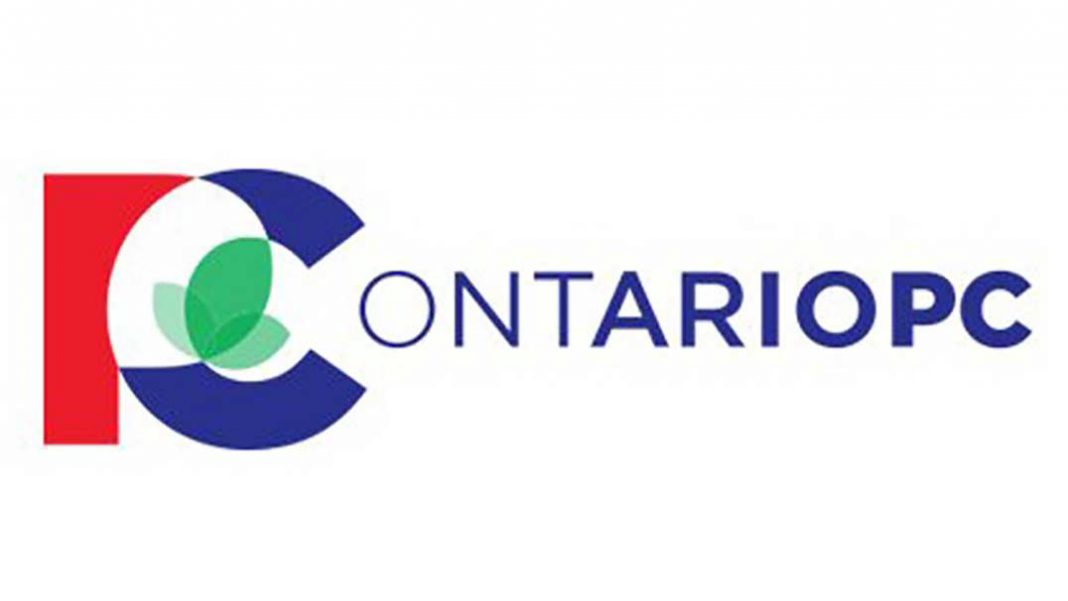TORONTO—The race is on to choose an Ontario Progressive Conservative (PC) leader to replace Patrick Brown and members of the PC party have until Friday to cast their vote on their choice(s) to lead the party into the fast looming provincial election taking place this June.
The whirlwind nature of this leadership campaign has not been without its hitches and the PCs bowed to pressure from its membership to extend the voting deadline from March 8 to March 9, giving members more time to register their intention to cast a ballot.
This was the second time the Ontario Tories had to extend the voter registration deadline in a historically short race—originally party members had to register to cast their votes by March 2, then extending it to March 5 before finally settling on noon today (Wednesday, March 7).
Four candidates remain in the race for the party leadership. They include former provincial legislator Christine Elliott (who has run for the leadership twice before), former Toronto city councillor Doug Ford, Toronto lawyer and businesswoman Caroline Mulroney and social conservative advocate Tanya Granic Allen. Patrick Brown had also registered as a candidate to regain the job he was forced to abruptly abdicate after CTV published anonymous accusations of sexual impropriety against him. Mr. Brown has vehemently denied the allegation and vowed to clear his name and ran again, but withdrew from the leadership race citing the pressure it was placing on his friends and family and saying he wanted to focus on refuting the anonymous allegations against him.
The election process has been criticized as being too complex, and there have been concerns raised about the potential for voter fraud, especially as paying for memberships can be done by prepaid credit cards, which cannot be traced.
During the election process, each party member will get one vote, which will then be converted into electoral votes. There are up to 100 electoral votes per riding, to be allocated to each candidate in proportion to the votes they received in the riding.
The voting itself will be by preferential ballot, the same system used by the Liberals, where the voter ranks each of the candidates in order of preference. If no candidate secures 50 percent of the vote plus one on the first round, the last place candidate (and those receiving less than 10 percent of the vote) will be dropped from the ballot and the second choice on their ballots will be allocated to the other candidates. In any event, the winner will be announced on March 10 as originally planned.
Of all the candidates, Christine Elliott has been touted as Liberal Premier Kathleen Wynne’s worst nightmare—as evidenced by pre-emptive Liberal attack ads aimed at Ms. Elliott. Ms. Elliott is an experienced politician with a sound track record as an MPP. She was appointed as the provincial Patient Ombudsman (chosen through a competition) by Premier Wynne herself. She has run a safe classic front runners campaign, but recent polls have suggested that Doug Ford may be pulling ahead among the rank and file.
All of the candidates have renounced the carbon tax plan contained in the platform document released by Mr. Brown before his untimely electoral demise, but Ms. Elliott’s sole misstep (or perhaps calculated wink and nod to the environmentalists in the party) was to muse that it could be considered sometime in the future.
Doug Ford has certainly appeared as the guy to beat—in fact he is the only guy in the lists.
Mr. Ford is harnessing the same populist winds that propelled Donald Trump into office. Anti-elitist and a person with a strong sense of retail politics, he is the brother of the late Toronto Mayor Rob Ford and the heir apparent of the still powerful Ford Nation political machine. Mr. Ford is harnessing the current wave of anti-government sentiment by citing the Liberal government’s track record alleging broken promises, corruption allegations, mismanagement and chaos. Mr. Ford narrowly lost the last Toronto mayoral race to fellow Tory John Tory and he would be a strong asset in the crucial seat rich region of Toronto and the Greater Toronto Area, a place any party must post well in if they are to form a government.
As the daughter of former prime minister Brian Mulroney, Caroline Mulroney could be written off as a would-be scion of yet political dynasty-in-waiting, but she brings a number of assets to the table that might play well as the dark horse in the two-way race between Ms. Elliott and Mr. Ford. She is a fresh face, untainted by association with defeated governments or close electoral losses. She holds a law degree (recently registered to practice law in New York) and a financier, in other words she has proven success outside of government and in business. She has built a strong reputation in a short time as a quick study and although she came out of the gate a bit shaky, her performances have consistently improved with remarkable speed and with it her visible confidence has grown. She has a great potential to connect with a younger demographic as well—particularly younger women who had proven to be problematic for the Tories under Mr. Brown.
Finally, there is Tanya Granic Allen, the social conservative who might easily be expected to be the first to fall from the ballot. But she does connect well with the significant number of party members who were lining up to support Mr. Brown’s abortive re-election bid. Ms. Granic Allen cites fiscal restraint, a new (undefined as yet) hydro policy and parental consultation in education (particularly sex education, which she says is going too far too fast and that she would rewrite). She has also vowed to rid the province of wind turbines. She is a strong advocate of reforming the PC candidate selection process, a position that will play well with the executives and active riding association members. Ms. Granic Allen is a parents’ rights activist, the owner of a consulting business and a, more recently, a hops farmer in Grey County.
There are almost 190,000 eligible voters in this week’s race, but far fewer are expected to vote in the online leadership vote. Ballots with the PIN numbers necessary to register to vote have been mailed out and should all have been in electors’ hands by yesterday (Tuesday).
The winner of the leadership contest will be announced at a convention in Toronto on Saturday.





